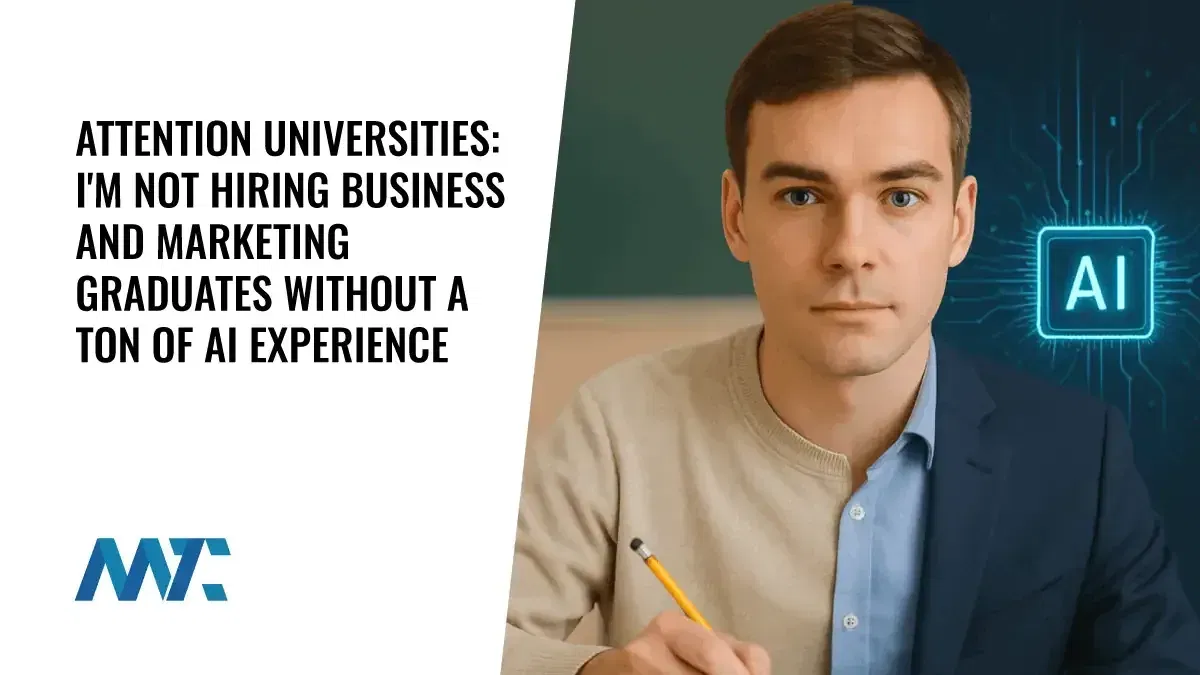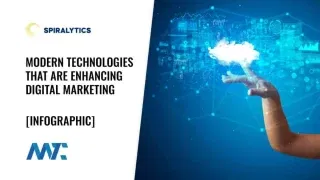Attention Universities: I’m Not Hiring Business and Marketing Graduates Without A TON of AI Experience

The future of education is approaching a breaking point—and for marketers, sales professionals, startup entrepreneurs, and business executives, the lesson is not an academic one. It is the same lesson that reshaped the media industry: adapt to technology, or watch as it bypasses you entirely.
Consider the cautionary tale of the newspaper industry. For decades, newspapers enjoyed unrivaled dominance. They owned massive printing plants, relied on advertising revenue streams that seemed unshakable, and were led by executives who had climbed the ladder entirely within that closed ecosystem. But when the internet arrived, they clung to their legacy model. They were slow to adopt digital, even slower to embrace interactive, 1:1 experiences. Being in the industry, it was terrifying to watch from the sidelines as online video, social media, and search engines attracted our audiences—and their advertisers. By the time they attempted to transform, the market had already moved on. Thankfully, so did I!
Education and Artificial Intelligence
Education is now standing in a similarly precarious position. Curricula often require years of planning, approval, and production. By the time the textbooks arrive in classrooms, the information is already outdated. That lag might have been acceptable in an era of slower progress. But in today’s world—where industries are reinvented every 18 to 36 months—it is fatal.
Here’s the bigger issue: knowledge is no longer scarce. It’s abundant. The world’s information is available to anyone with an internet connection, instantly. That means the historical gatekeeping function of educational institutions is no longer their differentiator.
Instead, their value must shift from distributing knowledge to developing skills—specifically, the skill of rapid, adaptive learning. In the same way that marketers must constantly evaluate new platforms and sales teams must pivot to new buyer behaviors, students must be prepared to update their knowledge base and skill set continually.
This is where artificial intelligence changes the stakes entirely. AI is not just a new tool—it’s an accelerant. It enables individuals to bypass slow-moving organizations altogether. If a business refuses to adopt modern marketing analytics, competitors using AI-driven insights will overtake it. If a sales team resists AI-assisted prospecting and personalization, more agile teams will dominate their market share. And if an educational institution shields its students from AI tools, it will graduate people who are already behind on day one.
For marketers and entrepreneurs, this is déjà vu. We’ve seen brands ignore digital transformation (DX), convinced that legacy reputation and processes would carry them through. AI is making that mindset even more dangerous because the speed of displacement has increased. What took a decade to disrupt newspapers could take a few years—or months—in education and business.
This is not to suggest that the foundations of knowledge are irrelevant. Instead, the foundation must be paired with the ability to acquire, filter, and apply new information at a pace humanity has never experienced before. In the business world, that ability defines whether a company remains competitive or becomes irrelevant. In education, it will determine whether graduates become innovators or obsolete.
A marketing graduate who lacks experience with AI-driven tools is of no use to me as a CMO. None, whatsoever.
Douglas Karr, Martech Zone
It’s a devastating reality. Their debt will be real, but their preparation will be hollow. For those of us in business, this would be the equivalent of onboarding a new marketing director who has never run a digital campaign or a sales VP who has never used a CRM. It’s not just unhelpful—it’s a liability.
The takeaway for leaders—whether in education, marketing, sales, or entrepreneurship—is clear: agility beats tradition when the environment shifts. AI is here, and it will not wait for approval cycles, textbook print runs, or the way we’ve always done it mentalities. The institutions and organizations that survive will be the ones that embrace AI as an enabler of continuous learning and real-time adaptation. Those who don’t will be bypassed by those who do. It’s already happening.
Takeaways for Educators and Students
While the parallels between education’s current trajectory and the decline of the newspaper industry are striking, the good news is that both educators and students have the power to change course. By embracing agility, integrating AI, and focusing on continuous learning, they can ensure the classroom becomes a launchpad for future success rather than a relic of outdated methods. The following takeaways offer a roadmap for adapting and thriving in this new era.
Educators
- Shift from static to adaptive curriculum: Shorten course development cycles and integrate digital-first resources so material can evolve in real time with industry changes.
- Integrate AI into the learning process1 to evaluate, use, and question AI-generated content, rather than banning it, to prepare them for AI-driven workplaces.
- Focus on teaching how to learn, not just what to know: Replace rote memorization with skills in research, synthesis, problem-solving, and continuous learning.
- Build industry-aligned partnerships: Collaborate with businesses, tech platforms, and industry leaders to ensure that the tools and knowledge taught align with real-world demands.
- Evaluate students on adaptability: Develop assessment methods that reward the ability to learn new tools and apply concepts, not just recite information.
Students
- Adopt a lifelong learning mindset: Treat graduation as a starting point, not an endpoint, and build the habit of continuous upskilling.
- Master AI tools early: Learn how to use AI to research, analyze, create, and problem-solve so you’re equipped for modern business challenges.
- Prioritize skills over credentials: Degrees are valuable, but your ability to adapt to new technologies and methods will define your career longevity.
- Curate your personal learning stack: Identify the best online platforms, communities, and tools for your field, and keep them up to date.
- Seek real-world application opportunities: Use internships, side projects, and freelance work to apply your learning in environments that mirror the pace and pressure of industry.
The newspaper industry’s collapse wasn’t just about technology—it was about culture. Education is now at the same cultural crossroads. For business leaders watching closely, the parallel isn’t a warning from the past—it’s a playbook for the present. The future belongs to the learners, the adapters, and the innovators. Everyone else risks becoming tomorrow’s case study in missed opportunity.







